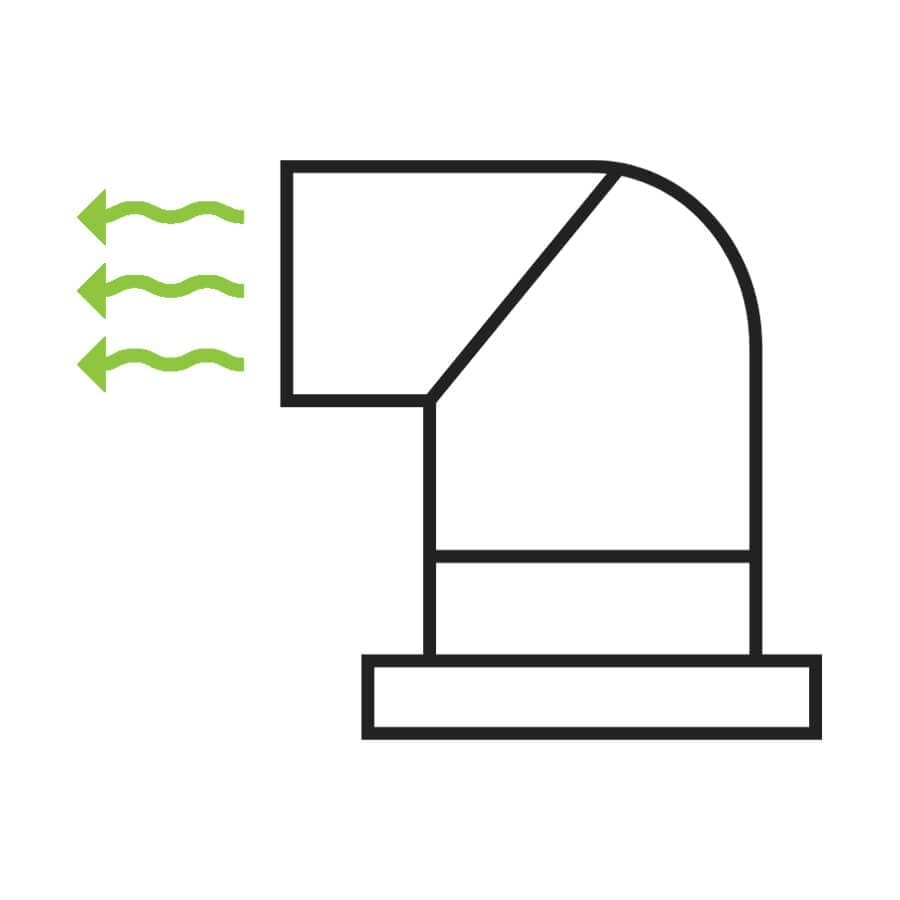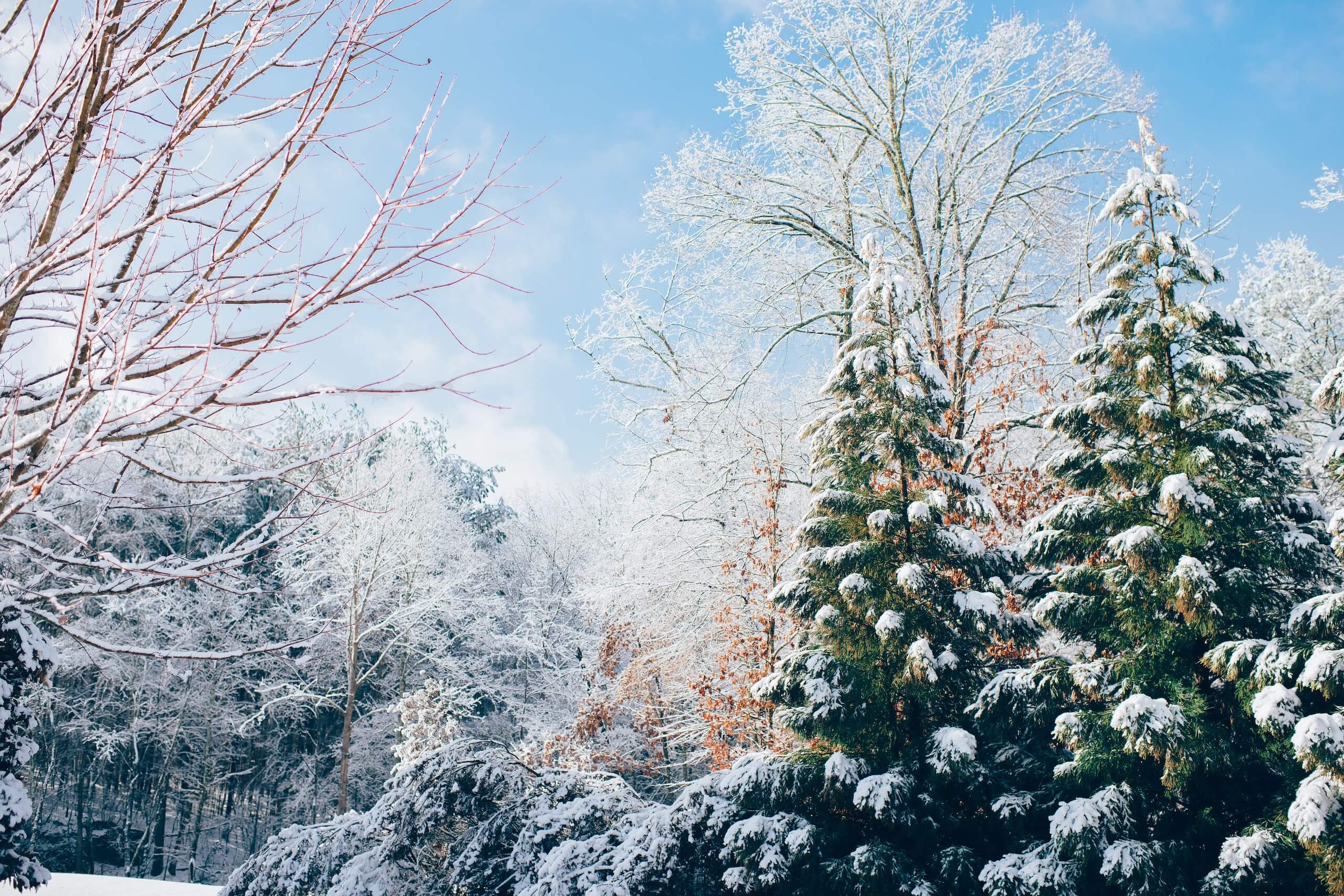You may or may not have noticed that air pollution can be worse during the winter months. Most people are surprised by this, as they expect air pollution to be worse during the summer months. What might explain this peculiar phenomenon? In reality, certain pollutants are worse in warmer months and others during the colder months.
From temperature inversions to energy use, there are several reasons air pollution during winter is often worse. Here’s what you should know about air quality and cold weather.
How Does Cold Weather Affect Air Pollution?
Wintertime atmospheric conditions often result in temperature inversions. Temperature inversions, also known as thermal inversions, occur when the atmosphere’s temperature behaves in a manner that opposes its usual pattern.
 More: 11 helpful wintertime and cold weather healthy home HVAC tips for improved indoor air quality and a safe, healthy winter season →
More: 11 helpful wintertime and cold weather healthy home HVAC tips for improved indoor air quality and a safe, healthy winter season →Air is typically warmer near the ground. But, during an inversion, the opposite is true. In other words, during a winter temperature inversion, cold air is trapped at the surface by a layer of warm air.
Winter Inversion Air Pollution
There are three types of temperature inversions: surface inversion, subsidence inversion and frontal inversion. These three types of temperature inversions explain exactly how this cold air layer phenomenon occurs.
- Surface inversion occurs when air closest to the earth’s surface cools faster than the air above it. This is a result of the earth’s surface losing heat quickly due to cold weather and little to no wind.
- Subsidence inversion occurs when a widespread layer of air moves toward the earth’s surface and becomes colder than the air above it. Subsidence inversion is often seen near high-pressure centers.
- Frontal inversion occurs when cold air and hot air meet at a weather front, and the cold air moves toward the earth’s surface, pushing the hot air above it.
The Relationship Between Cold Air and Air Pollutants
Air pollutants and cold air have a unique relationship. Let’s take a look at a few key characteristics of cold air. First and foremost, unlike warm air which rises, cold air sinks. Cold air is denser because the molecules are closer together and absorb less energy. Thus, cold air also move slowers.
When the temperature drops and temperature inversions occur, cold air acts as a blanket, covering the ground. Air pollutants are trapped beneath the layer of cold air. Essentially, air pollutants cannot disperse into the air as they would when the weather is warm. In addition, because cold air moves slowly, it does not help whisk away air pollutants.
All of this is to say, air pollution can be worse during winter because air pollutants have nowhere to go.
Wintertime Energy Use and Wood Burning
In addition to colder drier winter air trapping air pollutants, wintertime air quality can also be worse thanks to human activities.
Energy use often increases during winter as demands for heat increase with colder weather. For example, you may leave your car idling while it warms up or simply run your home’s heater longer. The majority of cars, houses and businesses rely on fossil fuels for energy. This is particularly true in developing countries, some of which burn coal and garbage for energy. This increase in burned fossil fuels, garbage and coal emits copious amounts of PM2.5 and other toxic air pollutants.
Furthermore, there is increased wood burning during winter. Particularly among residential buildings as more homeowners turn to wood-burning fireplaces to keep warm. All of which increase particulate matter and carbon monoxide levels indoors and out.
In combination with wintertime temperature inversions, increased air pollutants contribute to worse air pollution during winter.
Air Pollution During Winter
If possible, try to be more cognizant of your energy usage and household habits this winter. The world’s air is already extremely polluted, and adding to that pollution when the weather is cold only serves to create a more toxic atmosphere.
Also, keep in mind that outdoor air pollution makes its way indoors! The cold air that traps pollutants near the surface and limits air circulation means worse indoor air pollution during winter too! Consider healthy home habits and source control steps, or IAQ home system upgrades to create a healthier indoor environment all winter long.
 More: How winter affects indoor air quality and IAQ action steps you can take to ensure healthy indoor air all winter long. Read more →
More: How winter affects indoor air quality and IAQ action steps you can take to ensure healthy indoor air all winter long. Read more →


